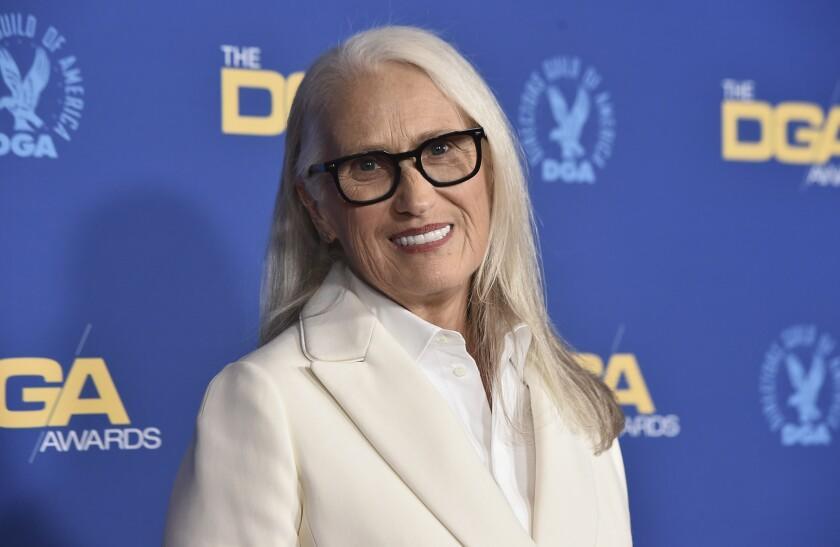
“The Power of the Dog” writer and director Jane Campion has responded to actor Sam Elliott’s derogatory comments about her Oscar-nominated western drama.
In a red-carpet interview with Variety at Saturday’s Directors Guild of America Awards, Campion rejected Elliott’s scathing take on the acclaimed Netflix film. Then she won the top prize at the Beverly Hills ceremony for her work on “The Power of the Dog.”
“I think Sam … he was being a little bit of a b—,” Campion said.
“I’m sorry to say it, but he’s not a cowboy. He’s an actor. And the West is a mythic space, and there’s a lot of room on the range.”
Elliott — who made a name for himself acting in westerns — drew sharp criticism earlier this month for complaining about “The Power of the Dog” and its “allusions to homosexuality” on comic Marc Maron’s podcast.
He also doubted Oscar-winning writer and twice-Oscar-nominated director Campion’s authority over the genre, asking, “What the f— does this woman from [New Zealand] know about the American West” and “Why in the f— did she shoot this movie in New Zealand and call it Montana?”
“I think it’s a little bit sexist … if you think about the number of amazing westerns that were made in Spain by Sergio Leone,” Campion told Variety.
“I consider myself a creator. And I think he sees me as a woman or something less, at first, and I don’t appreciate that.”
Campion isn’t the first person from “Power of the Dog” to challenge Elliott’s statements about the movie, which is nominated for 12 Oscars — more than any other title this year — including director and best picture.
Without naming names, Benedict Cumberbatch — who stars as proud rancher Phil Burbank in “The Power of the Dog” — called Elliott’s stance on the film “very odd” during a BAFTA Film Sessions interview last week.
After Elliott dismissively likened the cowboys in “The Power of the Dog” to Chippendales dancers, Cumberbatch condemned the performer’s “denial that anybody could have anything other than a heteronormative existence because of what they do for a living or where they’re born.”
He also denounced “a massive intolerance within the world at large towards homosexuality still, towards an acceptance of the ‘other,’ of any kind of difference, and no more so than in this prism of conformity in the sense of what is expected in a man in the sort of western-archetype mold of masculinity.”
Representatives for Elliott did not immediately respond Sunday to a request for comment.
“I’m here because I care about women having voices,” Campion said Saturday during her DGA acceptance speech, according to the New York Times, “and I’m so excited about the next generation of filmmakers.”
In addition to Campion’s victory for “The Power of the Dog,” Maggie Gyllenhaal of “The Lost Daughter” received the DGA award for first-time feature film, while Mark Mylod (“Succession”), Lucia Aniello (“Hacks”) and Barry Jenkins (“The Underground Railroad”) claimed the top TV prizes.
This story originally appeared in Los Angeles Times.




